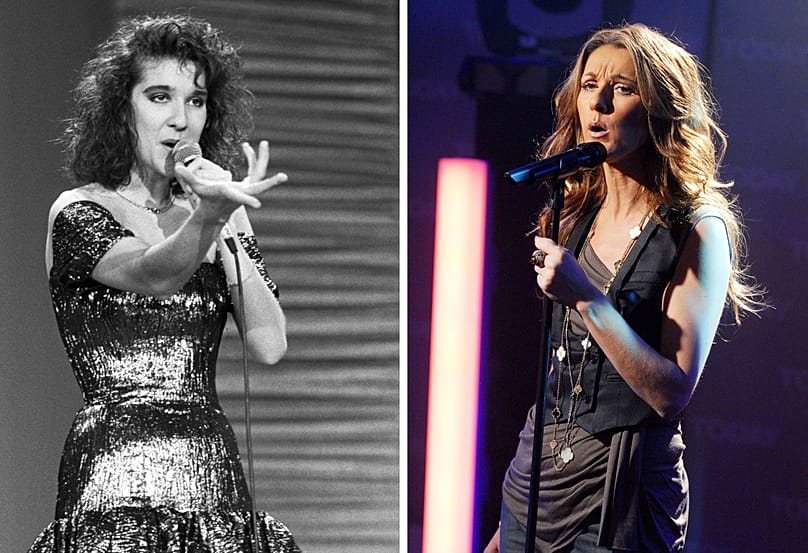Canada is exploring the possibility of joining Eurovision, something officials say reflects the country's effort to assert its cultural independence and deepen ties with Europe. The EBU has confirmed early talks are underway, but no decision has been made.
Despite the fact many Canadian artists have featured in Eurovision – most famously Céline Dion, who won in 1988 for Switzerland - Canada has never participated in the world's largest music event. But that could be about to change.
 ADVERTISEMENT
ADVERTISEMENT
 ADVERTISEMENT
ADVERTISEMENT
Canada’s federal budget, released on 4 November, included a mention that Canada’s government is working with its national broadcaster for a bid to join the Eurovision Song Contest.
The North American country had previously considered participation before, but the Canadian Broadcasting Corporation (CBC) - an associate member of the European Broadcasting Union, which organises Eurovision - said in 2022 that it had “ruled out” the idea, determining it would be “prohibitively expensive.”
However, the budget includes a $150 million funding increase for CBC/Radio-Canada and also allocates $400 million to various cultural organizations and funds.
The timing is also far from anodyne, considering Donald Trump has slapped Canada with tariffs. Last month, Trump said he was adding 10 per cent to US tariffs on goods imported from Canada, after the province of Ontario aired an anti-tariff advertisement featuring Ronald Reagan.
Trump's administration had already imposed a 35 per cent levy on all Canadian goods - including a 50 per cent levy on metals and 25 per cent on automobiles.
Prime Minister Mark Carney said in response that Canada was ready "to continue to build on the progress we had been making" in trade talks, but added that it was developing trade relationships with other countries.
Indeed, Trump's actions have precipitated the Canadian government’s desire to deepen its alliances with Europe, and a Eurovision inclusion could be just the ticket to distance itself further from the US.
Carney even made a point of visiting France and the UK in March on his first trip overseas as prime minister, declaring that Canada is “the most European of the non-European countries.”
Regarding Canada’s inclusion in Eurovision, François-Philippe Champagne, Canada’s finance minister, told Global News that the contest is “a platform for Canada to shine.”
“This is about protecting our identity - yes, we want to protect our sovereignty, but you also want to help people in the arts sector and in the film industry to make sure they can shine around the world. And we have a lot to offer as Canadians.”
On Wednesday, the director of the Eurovision Song Contest, Martin Green, issued the following statement: “The Canadian conversation with CBC/Radio-Canada is in its very early stages and we look forward to continuing our discussions with them.”
He added: “We’re always excited to know that broadcasters want to be part of the world’s largest live music show.”
Canada’s European pivot could follow the example of Australia, which joined Eurovision in 2015 after receiving a special invitation from the EBU despite being outside the European Broadcasting Area.
However, don’t expect a confirmed new inclusion any time soon, as Eurovision is currently wrestling to keep the contest from tearing itself apart.
There has been much internal disagreement about who should be able to take part in the competition. Israel’s participation has been the source of much controversy in recent months.
Several European broadcasters, including Ireland, the Netherlands and Slovenia, have threatened to withdraw from next year’s competition unless Israel’s broadcaster KAN is banned from participating.
Organizers had scheduled a vote for this month on whether Israel should be allowed to compete in the 70th anniversary edition of Eurovision in Vienna, Austria, in May 2026. The vote has since been postponed.
“So right now, expanding Eurovision really isn’t the major focus of the European Broadcasting Union - it's trying to save the contest as it is,” Dean Vuletic, a historian of the Eurovision Song Contest, told Global News.
Vuletic did add, however, that he was not surprised that the Canadian budget included a line about the competition.
“Canada is a country that is close to Europe, culturally, politically, especially the countries of the European Union,” he said. “We’re talking about the EU member states which are the core of Eurovision and they’re the ones that Canada is looking to develop closer ties with considering the current situation in the world.”











